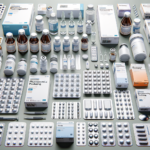Introduction to Type 2 Diabetes Medication
Type 2 diabetes is a chronic condition that affects millions of individuals worldwide. It is characterized by insulin resistance, where the body does not use insulin effectively, leading to elevated blood sugar levels. Managing this condition often requires a multifaceted approach, including lifestyle changes, diet, exercise, and medication. Understanding the role of medication is crucial in effectively controlling blood sugar levels and preventing complications associated with diabetes.
Medications for Type 2 diabetes work in various ways to help manage blood sugar levels. Some increase insulin production, others decrease glucose production in the liver, and some improve insulin sensitivity. The choice of medication depends on individual health needs, the severity of the condition, and other factors such as age and existing health conditions.
Types of Medications for Type 2 Diabetes
There are several types of medications available for managing Type 2 diabetes, each with its unique mechanism of action. Here are some commonly prescribed options:
- Metformin: Often the first-line medication, it works by reducing glucose production in the liver and improving insulin sensitivity.
- Sulfonylureas: These stimulate the pancreas to release more insulin.
- Thiazolidinediones: They improve insulin sensitivity in muscle and fat tissues.
- DPP-4 inhibitors: These help increase insulin production and decrease glucose production.
- SGLT2 inhibitors: They help the kidneys remove glucose from the bloodstream.
The choice of medication is typically tailored to the individual’s specific condition and response to treatment. Physicians often start with one medication and may add others as needed to achieve optimal blood sugar control.
Managing Blood Sugar Levels with Medication
Managing blood sugar levels is a critical aspect of living with Type 2 diabetes. Medications play a vital role in this process by helping to maintain blood glucose within a target range. However, medication alone is not enough. It should be complemented with lifestyle modifications such as a balanced diet and regular physical activity.
Patients are encouraged to monitor their blood sugar levels regularly to understand how their medication and lifestyle choices affect their condition. This monitoring helps in making informed decisions about medication adjustments and lifestyle changes.
Regular consultations with healthcare providers are essential to assess the effectiveness of the medication regimen and make necessary adjustments. This collaborative approach ensures that blood sugar levels remain stable and reduces the risk of diabetes-related complications.
Potential Side Effects and Considerations
While medications for Type 2 diabetes are generally safe, they can have side effects. Common side effects include gastrointestinal issues, weight gain, and, in some cases, hypoglycemia (low blood sugar levels). It is important for patients to be aware of these potential side effects and to communicate any concerns with their healthcare provider.
In addition to side effects, there are considerations related to drug interactions and contraindications. Patients should provide their healthcare providers with a complete list of their medications, including over-the-counter drugs and supplements, to avoid adverse interactions.
Adherence to the prescribed medication regimen is crucial for effective blood sugar management. Patients should understand the importance of taking their medications as directed and not skipping doses, as this can lead to fluctuations in blood sugar levels.
Conclusion: A Comprehensive Approach to Diabetes Management
In conclusion, managing Type 2 diabetes effectively requires a comprehensive approach that includes medication, lifestyle changes, and regular monitoring of blood sugar levels. Medications play a pivotal role in controlling blood glucose, but they work best when combined with a healthy diet and regular exercise.
Patients should work closely with their healthcare providers to develop a personalized treatment plan that addresses their unique needs. By staying informed and proactive in managing their condition, individuals with Type 2 diabetes can lead healthy, fulfilling lives.








